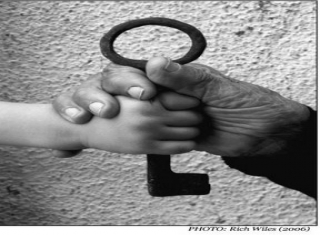May 15, 1948: This date seems present even in their lineaments. You can meet them in the diaspora camps, the place where they live.
Somaya Ali
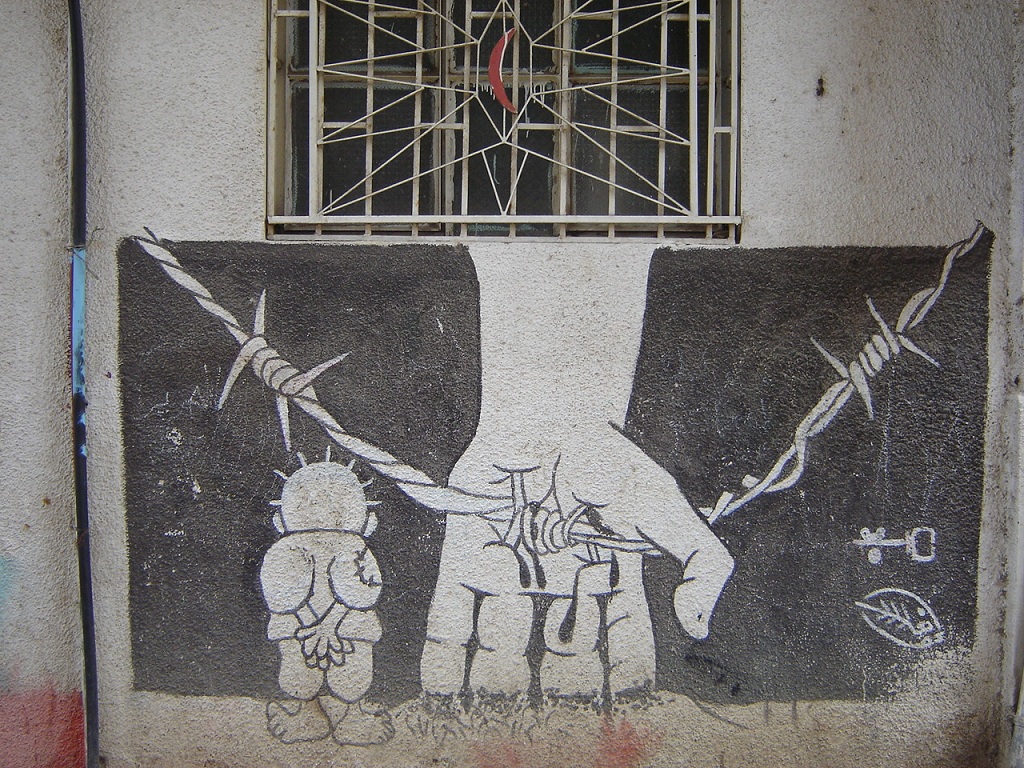 May 15, 1948: This date seems present even in their lineaments. You can meet them in the diaspora camps, the place where they live, after many years of waiting what they were told about the return which became a silent dream that continues to exist in order to survive in those narrow alleys.
May 15, 1948: This date seems present even in their lineaments. You can meet them in the diaspora camps, the place where they live, after many years of waiting what they were told about the return which became a silent dream that continues to exist in order to survive in those narrow alleys.
When you talk to them about their Nakba (catastrophe), you can feel as if you are talking to imaginary-less bodies because theirs were kept in Palestine, the homeland, where orange and olive trees are still deep-rooted with memories of that place. Their imaginaries stayed there so as not to age, wishing that their people will rush towards them in a moment of boredom to shift into childhood and teen ages whenever they like to.
The Beginning... When the "Salvation Army" Shouted: Leave!
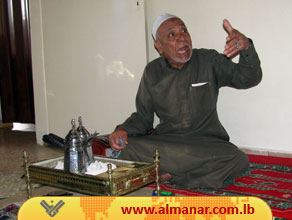
There, in Shatila camp, a Palestinian refugees' camp in the Lebanese capital of Beirut, there is nothing that looks like Palestine. We walked in the alleys of the camp where light is dim even in broad daylight for the alleys are so narrow and overlapping houses were built at random. We headed towards the house of Abu Ahmad Ibadi, from the Nakba generation, but reaching it was difficult even for the resident of the camp who guided us in the tour because the corridors "Sahtila" are alike and all reveal mess and misery. On the door of his temporary house, as he calls it, Abu Ahmad welcomed us with a smile that opened its way among several lines that fill his eighty years old face. We sat then in his favorite place where he puts his Arabian coffee and the Palestinian heritage strongly appears. Abu Ahmad immediately took out his identity card and started reading it loudly: "I am Mohammad Ibadi, from the Arabs of Al-Raml, in the district of Haifa, born in 1934."
After that, the old man went sixty four years backward: "I left Palestine, specifically Acre to where we fled after Zionists occupied Haifa and before my parents left it by the beginning of Nakba. At that time, I was thirteen years old and I headed to Beirut for studying." Abu Ahmad stopped talking for a while, as if he was recollecting his disarranged memories. "When we were in Acre, specifically in the Naji Square, the then so-called “the Salvation Army” entered the city and was composed of the neighboring countries’ armies. The troops started to shout: O our people of Palestine! Emigrate for two weeks," Abu Ahmad added. Then, he angrily looked at us and said that those armies, i.e.: the Arabian armies colluded with the Jews against the Palestinian people. "They said: emigrate for two weeks. We emigrated for many years, and returning to the homeland became a dream," he explained.
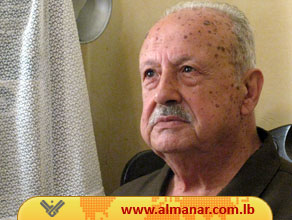 The man continued then to narrate the events of the Nakba, he said: "After the occupation of Acre, my parents fled to Majd Al-Kroum, then left it on foot after the Irgun and the Haganah gangs entered it. My parents left Palestine barefooted; they left everything even their hope." At that moment, Abu Ahmad stopped talking about his Nakba, he accompanied us till the door of his house, asserting that he won't be buried but in Palestine. "I won't die as a refugee, I wish so. However, I don't believe in the Arab Spring. What change you are talking about? Palestine became totally absent from the Arab conscience."
The man continued then to narrate the events of the Nakba, he said: "After the occupation of Acre, my parents fled to Majd Al-Kroum, then left it on foot after the Irgun and the Haganah gangs entered it. My parents left Palestine barefooted; they left everything even their hope." At that moment, Abu Ahmad stopped talking about his Nakba, he accompanied us till the door of his house, asserting that he won't be buried but in Palestine. "I won't die as a refugee, I wish so. However, I don't believe in the Arab Spring. What change you are talking about? Palestine became totally absent from the Arab conscience."
Not far from Abu Ahmad's house, Ahmad Abu Naaj, another Palestinian from the Nakba generation, resides. When talking about his country, As-Saffouri, in the province of Nazereth, childhood twinkles on his face as he describes it to us. "The pomegranate and olive trees are widespread" in his country. He narrated the events of leaving As-Saffouri, "I was six years old, and I still remember the roar of the planes that bombed our country. I still remember how we were dispersed in the farms without any food for several days until we arrived at Bint Jbeil, a southern Lebanese country."
During a tour with Ahmad inside the camp, he was adhering to the fact that he and his family aren't but residents in Lebanon. "All the members of our family were offered the Lebanese nationality but they didn't accept it. We came to Lebanon by force. They told us we will return after a month or couple, but those months extended longer and longer. We definitely refuse settlement (Tawtin), and we only demand some of our human rights. Our Nakba is still ongoing."
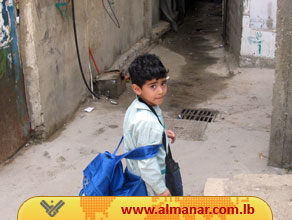 From Palestine towards Diaspora: Dreams to Survive
From Palestine towards Diaspora: Dreams to Survive
Few moments after walking in the tunnel-like alleys, we reached the "Dreams of a Refugee" center where a group of children from the camp gather to learn about the heritage of their country that living in their imaginaries. They belong to the fifth generation of the diaspora camps. They gather the remnants of Palestine from the stories of their grandfathers in addition to what the twenty-year young man, Jalal Abdulhadi, tells them. Jalal knew Acre from his grandfather who left it during the Nakba, but he believes that his generation lives a totally different Nakba. "We have lost our sense of belonging. In our minds exists an assumed nation which we don't know. We have lost our identity, we aren't but some refugees in certain spots of mess and misery," Jalal said.
Sobhi Afifi, responsible for this center, refuses surrendering to the reality of asylum. "We are working to replace the Nakba day with the day of Returning to Palestine. It is not that complicated, but we must begin from ourselves to end fragmentation among the factions and unite to restore our land," he explained. Sobhi, a licentiate in Business Administration and Accounting, is jobless because he is a refugee. This is his Nakba, but he doesn't want to give up. "A hope crops up from my country Yagur, in the province of Haifa, the place of orange trees where martyr Izz Din Al-Qassam was buried. I am not homeless," he added.
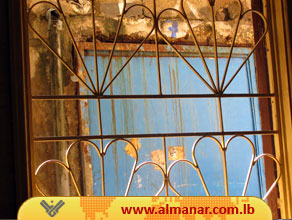 What was Taken by Force won't be Restored but by Force: The End of Nakba
What was Taken by Force won't be Restored but by Force: The End of Nakba
Two hours passed after we entered "Shatila". We left it, it seemed from afar as a detached spot from its surrounding. As if Nakba had settled there because what happened was stronger than the time on which the occupier had bet. Ahmad Abu Naaj, criticizing the Palestinian reality, said: "What was taken by force won't be restored but by force, Abd Al-Nasser once said; this is only what will restore Palestine." He also slammed the Palestinian reality "which wasn't able to bring out a unified experience that could produce a strong and organized resistance which causes pain to the occupier and forces him to surrender instead of continuing to surrender - we ourselves. After May's Nakba we still live much more Nakbas."
- Report translated by Zeinab Abdallah
- Video edited by Wassim Sader
- Photos taken by Wahab Zeineddine
